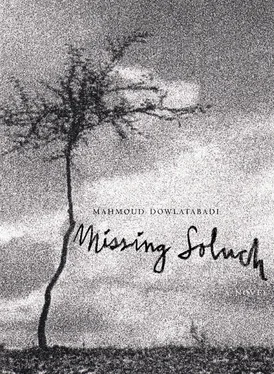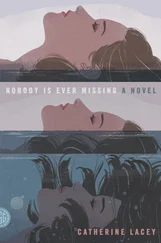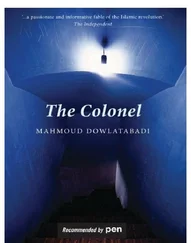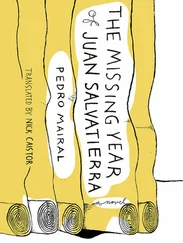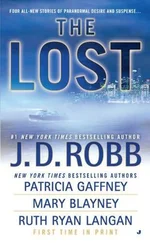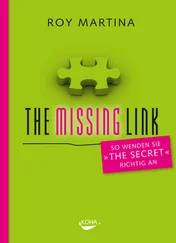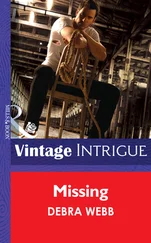To have screamed this out loud may seem easy enough, but Mergan couldn’t see herself doing so. How could she thrust the knife of hostility into her own chest? What would result from this? Will others set aside their ideas about you? If they do set aside their fantasies, will your spirit truly be at peace? No, of course not! It will seek out some other excuse. Your spirit will just become more adept at finding excuses to be unhappy.
What if I don’t say a word?
This feeling will still torment you. It won’t let you be. The only hope is to try to forget. But is it possible to try to forget? To forget everything? No … Especially since you’re held back by the sack of flour. So, no, it’s not possible to forget everything. It may be possible to forget your poverty, but the clash of two inner instincts, no. The violent clash of two trees breaking in a typhoon. No, there’s no easy solution. It’s impossible to digest it. It’s not a knot that can be easily opened, whether by hand or by teeth. The more you think of it, the less clear it becomes and the less you can discern it. It becomes more convoluted, and if you try not to think about it, it exhausts you even more. It’s like a tack that sticks in the sole of your foot. It incites you. It calls you to itself. It makes you dizzy. It cuts your breath. It fogs your eyes, agitates your look, your face. You look but don’t see. You laugh, if you have laughter left within you, but you don’t know why. You feel you could have cried instead. You’re turned upside down. But if you do think about it, you’re no better off. The pain comes from the fact that you have not been able to face what has been unleashed within you and come to a decision about it. To have a clear idea about it. To either brush it off, or to feel victimized by it. To drive it away from yourself, or to accept it within you. You’re pulled from all directions. You don’t know which direction to turn, where you are going. You’re caught in a dead-end facing the unthinkable. A violent pleasure has overrun you. A violent pleasure has planted the seed of a wild violence within you. You’re caught in the middle. On one hand, you’re a woman; on the other, you’re supposed to be chaste, pure. You are free and tied up at the same time. At peace and yet tortured, open and yet closed. The two are caught in one thought, which twists in the nooks and crannies of your mind. At the same time, need and desire also flicker within you, evident despite the mighty struggle that tries to repress them. They twist within you. In the recesses of your mind and in your deepest thoughts, in the unspoken, hidden, and undiscovered moments of your life, desire moves and even tries to break down the walls of social propriety with its horns. A cow overflowing with a lust and desire is ramming its horns within you. You are a woman. There is no escaping this. And a mother; again, no escaping it. You have a man, and yet you don’t. Soluch exists, and yet he doesn’t. His shadow and his face come and go, but neither is actually him. They aren’t Soluch. Is he alive or dead? Will he return or not? The flames, questions made of flames. Where is there an answer? There is no answer. The struggle of two lives in one. The Sardar, Soluch. Torment, desire, and rejection. Struggle. The lashes that scourge your spirit. You’ve been ploughed through and through, oh dry earth, oh barren land. They’ve ploughed you and pillaged you, oh earth. But you are both the land and the land’s protector, the guardian of the land. And the land and its guardian are two different things. A fertile land is ploughed, and that is what it desires, in its essence. But the land, Mergan, has been pillaged. Plundered. Ravaged. So where was she, Mergan, the guardian, to protect Mergan, the land, from her pillager? What sort of protector has she been? Shame and a sense of dishonor. What is dearest to you has been plundered!
This was what was tearing Mergan apart inside. This was the division within her. The fabric of her soul was torn. A fabric that before had only been marked by work and pain had now taken on a new color. This new color that tinted the fabric of her soul had cast a shadow over her actions and thoughts, over her face. An unspoken color, however new it was.
Abrau could not understand any of this, other than to note it.
She’s different now; somehow she’s changed!
Yes, she had changed. She was uneasy and often lost in her thoughts. But not thoughts about a decision. Clearly, something must have happened to her. But what? One could surmise almost anything, anything but the truth, which only Mergan knew!
“See what it’s doing?!”
This was Abbas. He had risen and, like an insect, was trying to pull the sack of flour toward his corner in the room. It was as if he wanted to spend a night in peace, sleeping beside the sack of flour. However difficult it was, he dragged the sack to the edge of the wall under the eyes of his mother and brother. His forehead was covered in sweat. He knelt beside it. Weak, he fell to panting. He set his elbows on the sack of flour and held up his forehead in the palms of his hands. It looked as if his head was spinning and his eyes had gone to black. His hands shook and it seemed as if his neck was holding his head up only with difficulty. His fingers scampered like little crabs through the mass of his hair, scraping at his scalp.
Abrau was sitting across from his brother, leaning on the opposite wall. The two brothers had not spoken a word to each other after that night. Abbas had fallen into his own silence, and Abrau didn’t know what to say to him. He was hindered by the question of whether or not he could speak to him at all. He felt he couldn’t. The wall that had gone up between them was growing taller and stronger day by day. So much so that it would seem that soon they would be unable to see one another over it. This had driven Abrau to take his own course in life, to some extent. It was the sense one has when one has lost something and wants to make up for it in another part of one’s life. So he became more and more committed to his work. He would spend more and more time working with the tractor of Mirza Hassan and his partners. He had become a part of its nuts and bolts. Eventually, riding on the tractor’s running board, he’d seen all the farmlands of Zaminej from the machine. Along with the driver from Gonbad, they would plough sections of the land and take the money they’d be paid and hand it to Mirza Hassan. Although the farmlands of Zaminej were owned by different landowners and weren’t all the same, still Mirza Hassan’s tractor had ruined the market for ploughbearing cows in the village. Farmers who had been able to secure a loan that would simply cover the rental of the tractor had thrown away their old yokes and ploughs. So it became rare to see cows, donkeys, or camels that were pulling a plough with an old man walking behind. The slicing blades of the tractor cut the heart and belly of the earth out, transforming wild grassland into a field of rubble. Even the strongest cows from Sistan would never be able to do this. In Abrau’s estimation, Mirza Hassan’s tractor was omnipotent.
Eventually, Abrau was allowed to sit behind the wheel of the tractor on his own. For different lengths of time, sometimes for half an hour, sometimes even an hour. At least long enough for the Gonbadi driver to smoke a cigarette or wet his mouth with water. Sometimes long enough to drive the tractor to and from somewhere. Mirza Hassan had also given Abrau the hope that he might give him the job of driving the tractor sooner rather than later. He told him it could happen as soon as the water pump was installed. This would give enough time for Abrau to be trained. Mirza Hassan didn’t want to lose the Gonbadi driver just yet, but it was clear that his time in Zaminej would be temporary. He was already homesick for his own town and area. He didn’t have the heart for the weather in Gorgon and the desert here; someday he would be leaving. So Abrau was an asset for Mirza Hassan. He would do the same work for less pay, and he would be less likely to complain or make demands. In fact, he loved the work. The only thing was, he lacked experience. The tractor wasn’t just a hulk of dry metal that could be driven by one’s fancy — it needed expertise. While he learned, Abrau kept his eyes open for any sign of the water pump’s arrival.
Читать дальше
